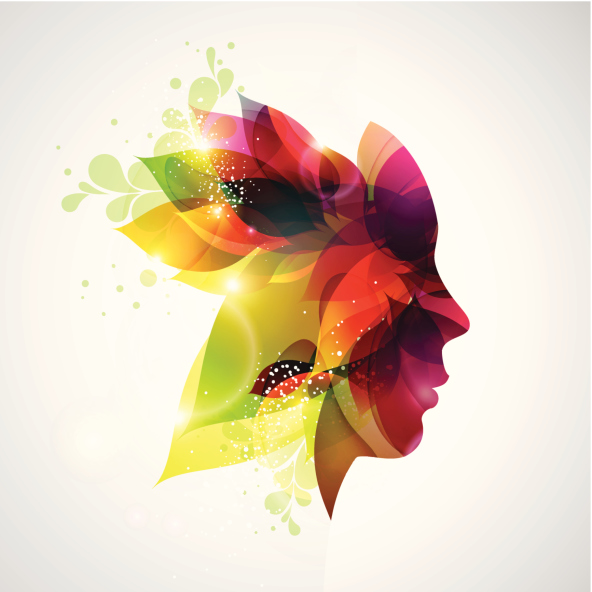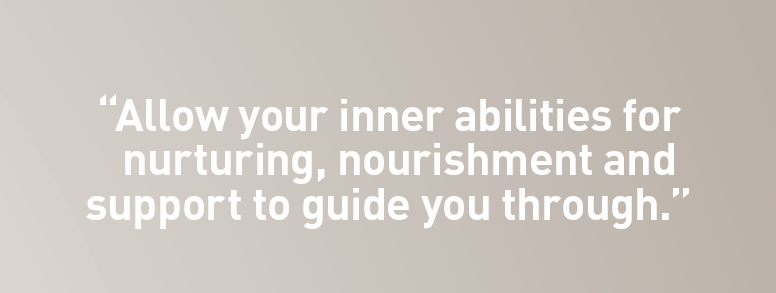Surfing the Menopause Wave
Your nutritional allies in transitioning and embracing.

By Colleen Kennedy
We go through many big transitions in our lifetime, but instead of treating them as a problem and retaliating against the tide, wouldn’t it make more sense to ride the wave and do what we can to prepare for and support these transitions?
The Menopause years can feel like a distressing time and society’s attitude to women and ageing can add further negative connotations. I’m all for accentuating our beauty and expressing our femininity but it’s important to empower ourselves and increase our confidence and comfort levels to remain unaffected or less affected by a billion dollar beauty industry that often aims to cash in on uncertainty, low self esteem and the desire for eternal youth! Facing the Menopause or going through it is a nice hint from our bodies to tune into and act on our intuition. Leading busy lives at home and in work as mothers, daughters, sisters, friends and wives, it’s tempting to blindly steamroll through this time, but perhaps that can lead to missing out on a potentially magical time of reflection and consolidation. Our bodies may be asking us to pause and refl ect on all that we’ve learned, experienced and integrated into who we are and who we are yet to become.
Perimenopause is the time when a woman begins to see changes in her cycle and ovulation, with or without symptoms. Postmenopause is when there is a cessation in menstruation. Technically, women are beginning to enter ‘The Change’ in their thirties! This is when a decline in the more powerful ovarian oestrogen, estridiol, begins. Of course, the range and speed of this differs in each woman. But preparing ourselves around this time may help us embrace rather than dread changes down the line.
Physically, one of the areas I focus on in my clinic are the Adrenals. The adrenal glands and our fat cells take over from the ovaries and produce a weaker oestrogen, estrone, which performs the role of estridiol, but is less potent. Many of the symptoms of Menopause are due to this switch from one form of oestrogen to the other.
You may know already know some of the common symptoms of Menopause: hot fl ushes, night sweats, mood swings, irritability, sleeplessness and memory issues. Hot fl ushes originate at the hypothalamus in the brain, the temperature regulator, and oestrogen is involved in this function. When levels are low, temperature regulation is disrupted – hence the rush of heat in the body, and the possible subsequent feeling of cold sweats as it passes. Certain things can trigger this, so watch out for spicy foods, caffeine, wine, overdressing and stress.

Stress, and particularly chronic stress can take its toll on the adrenal glands. The health of this gland is an important factor in determining how well women respond to their changes, and how long and smooth that wave will be. Women may have relied on their stress hormones to help them cope through their lives, leaving them with tired and depleted adrenal glands unable to now meet the demands of their changing bodies. A variety of plant medicine, targeted nutritional approaches and lifestyle changes can support the function of the adrenal glands to address stress responses. A combination of the above, rather than focussing on one herb or a particular supplement, is the smart way to go. There is no one natural prescription for Menopause as each woman will present with different symptoms and have different requirements. However, there are some common themes in naturopathic support.
The use of phytoestrogens (plant-based oestrogen) can be useful in balancing the transition from the stronger ovarian oestrogen to the weaker adrenal type. They can protect against mammary tumours and have a modulating effect on oestrogens. Phytoestrogens come from the likes of legumes, fl axseeds, fermented soya and various vegetables. Herbs in this category include Black cohosh and Red clover, but they are best used in part of a tailored formula that may also include adrenal, liver and nervous system support. The overall formula will be suited to the individual but plants can be great allies in this time of transition.
Accepting the Menopause as a developmental stage in your life that brings changes to perception and awareness, and allows a retrospective wisdom from a life of ups and downs to guide us through our golden years, can also help us embrace the physical changes and accompanying symptoms. Allow your inner abilities for nurturing, nourishment and support that you’ve learned in your life thus far to guide you through.
Colleen Kennedy graduated in herbal medicine and naturopathic nutrition from CNM and also lectures in herbal medicine at CNM Galway and Dublin campus.


